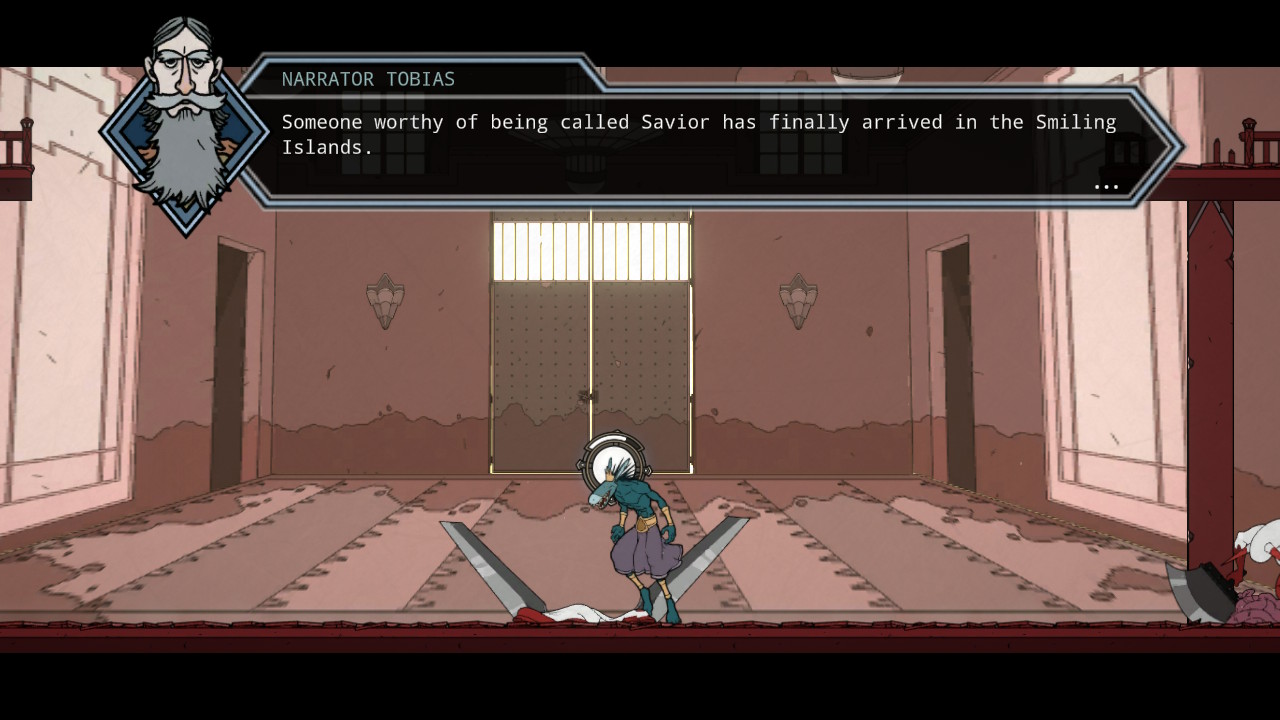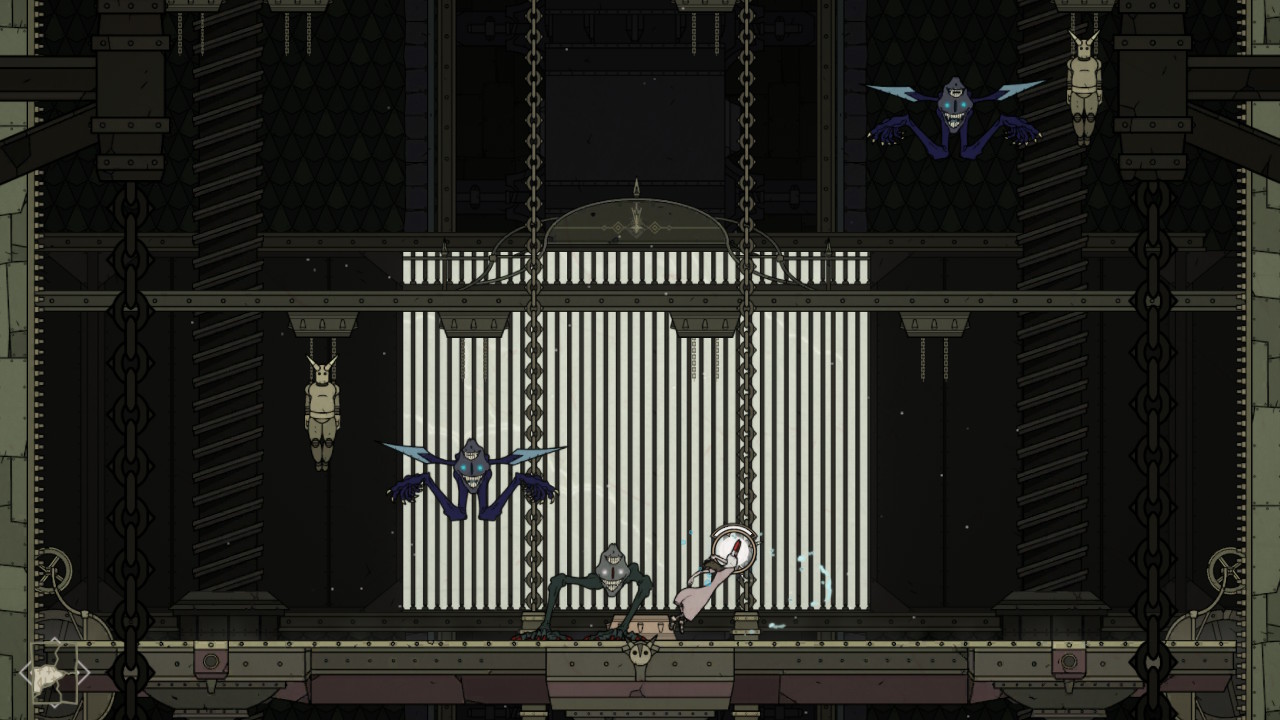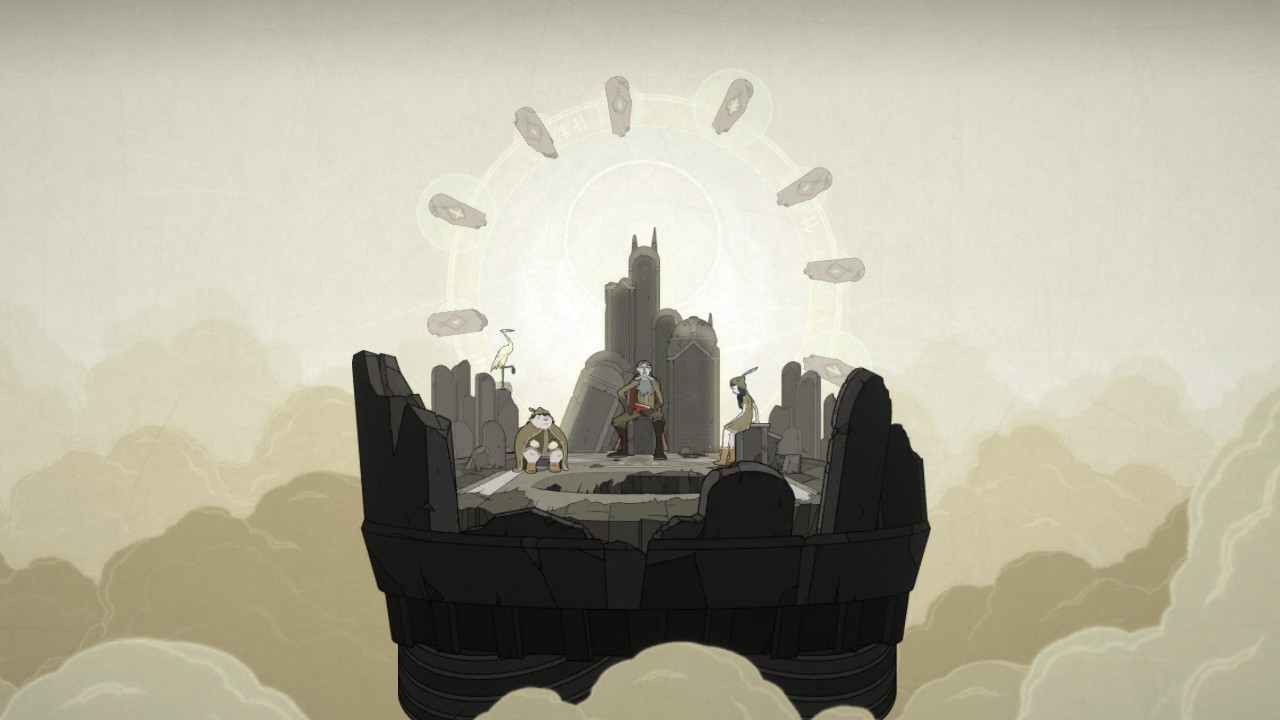Saviorless starts off by letting you know it’s going to take an…unconventional approach to storytelling. It begins with three godlike narrators sitting in the clouds. The eldest apparently narrates the story of the game you’re about to play, the two younger ones complain that he always tells the story the same way. To this, he replies that it’s absolutely vital they never change the way the story is told, and that the protagonists must never have control over it.
In terms of this game, it turns out to be the correct take.
Saviorless starts as a platformer. Your character, Antar, jumps, pushes, and pulls his way through a side-scrolling, puzzle-laden landscape as he attempts to follow the Radiant Heron to the Smiling Islands and become a Savior. Sounds nice!
It’s all rendered quite beautifully in a silky-smooth style that reminds me of Edward Gorey illustrations with the texture of medieval woodblock prints. There are ways to fail and there are ways to die, but, for the most part, it’s relaxing fare to puzzle the ol’ noggin.
Then that stops. Abruptly.
When the eldest narrator falls asleep, the young‘ns take it upon themselves to narrate the tale from the perspective of Nento, a mule-faced hunter whose relentless pursuit of the island is marked by violence, violence and… (checks notes) violence.

This detour also causes Antar’s tale to change as well. What was once a slow-moving puzzle platformer starts to add in elements of timed trials and button-mashing combat. One mistake—a mistimed jump or simply running out of time—means you’ll have to restart a section (including dialog) until you get it perfect. Once Antar arrives on the smiling islands, he discovers that combat puts a clock on his life; killing enemies gives him some life back, but he’ll still have to hurry to beat both the enemies and the environmental puzzles before he dies and must do it again. And again. And again.

It’s extremely stressful.
Add to this that each level has six page pieces you can collect by exploring the world. Some are obvious, others require you to find hidden crawl spaces or backtrack to capture. If you find all six you can trade them in to the writer of your tale, who will give you a reward. If you don’t have them all, he will offer you the opportunity to replay the entire level to find whichever pieces you’re missing. Oh, and if you do find a piece, but die before completing that section, you have to capture that piece all over again.

Did I mention this game becomes stressful?
Figuring out what you’re supposed to do on a level tends to be fairly easy, but managing to do it exactly right while floating monsters are exploding in clouds of blood around you is not. Casual gamers beware, but those who enjoy finding the precise way to fight and win will find a lot of enjoyment here.

